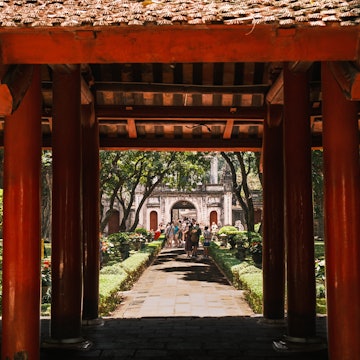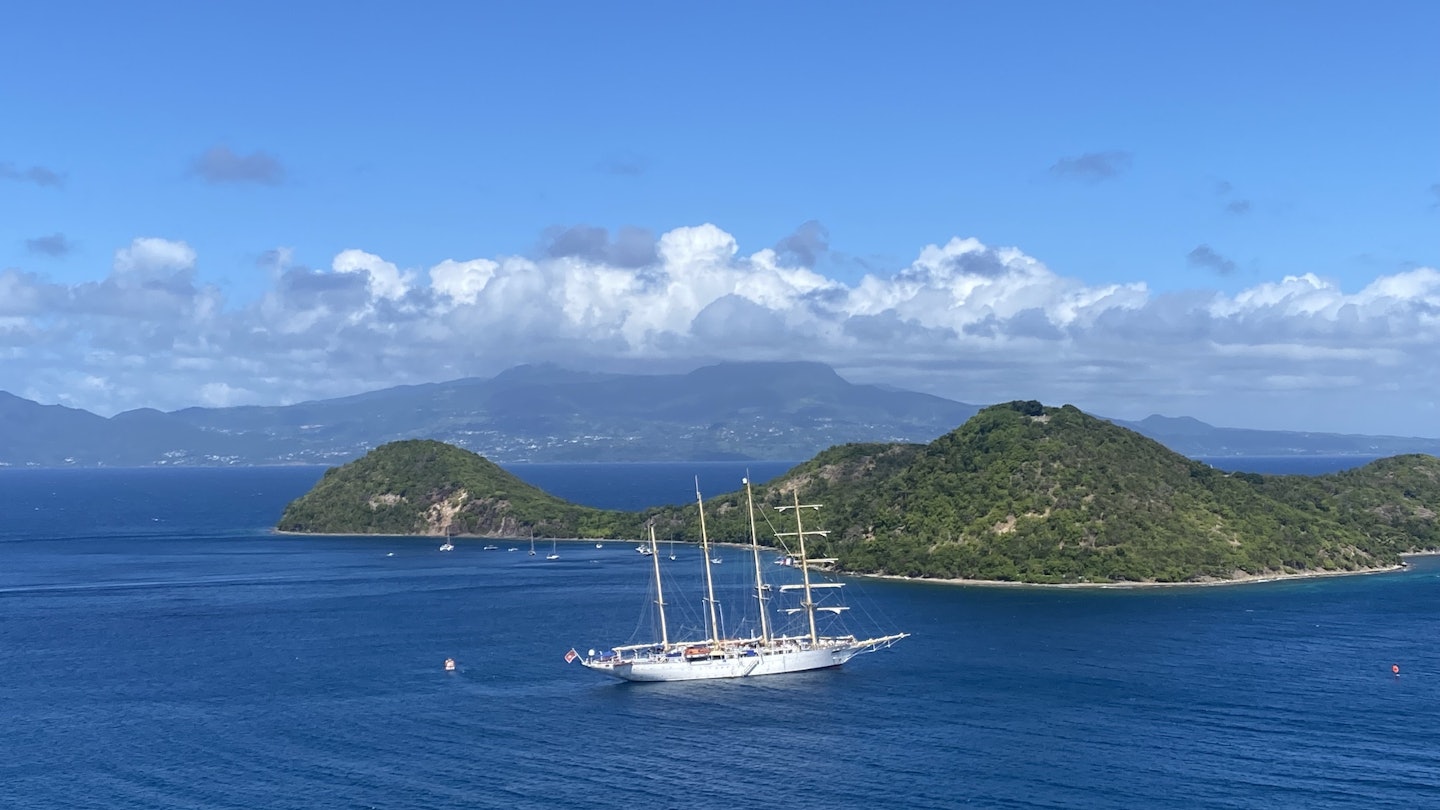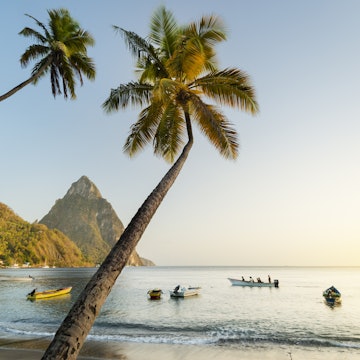
Copy My Trip: a winter break filled with swimming, hiking and dancing in Guadeloupe

Dec 11, 2023 • 5 min read

The blue waters off Guadeloupe, with La Soufrière, perpetually swathed in clouds, in the distance © Brian Healy
Lonely Planet guidebook author Brian Healy loves seeking out warm destinations to escape to in January. This year, his quest led him from New York City to Guadeloupe where he experienced five days of swimming, hiking and dancing under (mostly) sunny skies. Here, he shares some insights and tips for those seeking to escape the winter blues with a similar Caribbean holiday.
I always start craving a therapeutic dose of sun as the holidays recede, the new year begins and the cold really sets in. Past January wanderings have brought me to St Lucia and St Petersburg, Florida; earlier this year, I was all set to fly to the Dominican Republic.
But that’s another story.
Instead, I made a last-minute pivot and headed to enchanting Guadeloupe, a star of the Caribbean. I spent five days crisscrossing the island – and getting charmed by ultra-friendly residents who just love showing the place off. Who can blame them?

Where did you stay? What was the vibe?
A marvelous cottage belonging to charming host Laurent. The simple two-room bungalow had all I needed. But it was the terrace just outside where I spent most of my down time. Covered to protect from frequent passing showers, the space was perfect for breakfast, reading and catching up on email on my iPad.
What was the most touristy thing you did?
Feeding the lorikeets. In Deshaies on Basse-Terre’s west coast, the Jardin Botanique offers a well-curated, even-better-manicured survey of tropical flora from all over the world. The highlight for me? The aviary enclosure, where dozens of brightly colored and very hungry lorikeets flitter about.
The minute you open a small container of the sugary syrup they love (you can buy one at the garden entrance), expect a flutter of rainbow-feathered wings as your new best friends alight on your arm to slurp up the stuff.

Favorite activity from the trip?
Swimming, whenever and wherever I could. Guadeloupe’s beaches – La Caravelle, Grande Anse, Malendure (adjacent to the Réserve Cousteau) – are justly famous, and the chance to swim in the crystalline waters of the Caribbean never disappoints. While I spent plenty of time in the warm, salty sea, perhaps my favorite dip in Guadeloupe was in the pool fed by the cool fresh waters of the Cascade aux Écrevisses. You can reach this beautiful attraction along the must-drive Route de la Traversée, which cuts across Basse-Terre through lush Parc National de la Guadeloupe.

What’s your favorite photo from the trip and where was it taken?
Shots of a Carnival celebration in the small town of Ste-Rose. Driving home from the beach, I was at first annoyed that the traffic slowed to a standstill. Yet when I heard the beat of hundreds of drums in the distance, I knew I had to park and check out what was going on.
It was the best decision of my trip.
Beginning in January and culminating on the Tuesday before Lent (aka Mardi Gras), Guadeloupe’s Carnival (or “Kannaval”) celebrations take place each week in a different town on the island. I had stumbled upon the festivities in Ste-Rose, on the north coast of Basse-Terre.
Down the small town’s main street paraded hundreds of glittered and impressively high-heeled women (and a few men) dancing in formation to the music of their crew bands directly behind them. In between the many association groups, youngsters dressed in masks loudly cracked huge whips, providing another form of percussion. The huge crowds taking it all in with delight indicated this party was hardly for insiders only. Yet the small numbers of fellow tourists in attendance made me thank the travel gods for serendipitously steering me toward this joyous affair.

What do you wish you had packed?
A waterproof rain shell. La Soufrière volcano (which does indeed emit sulfur fumes that you can smell) is the tallest point in the Lesser Antilles, and I was determined to hike to its top. Setting out from the trailhead near Bains Jaunes, I found the first section of the hike – on a largely paved path through dense forest – almost too easy. The next section, however…
As the vegetation thinned out and the rocky ascent began, I found myself enveloped in the clouds that you can see hugging the mountain from just about anywhere else on the island. The incessant wind whipped rain into my face horizontally. My feet sank into muddy puddles on the ever-rougher trail. Steps from the summit, I crouched as wind gusts almost blew me into a plunging ravine.
It was thrilling.
But since I had forgotten to pack a long-sleeved, waterproof layer, I arrived at the 4813ft (1467m) summit in my soaked cotton sweater, a sopping if smiling mess. If you plan on doing this or any other outdoorsy excursion during your vacation on Guadeloupe, you won’t regret packing a variety of lightweight, watertight layers.

What is the one thing that you did not expect?
The power of Mémorial ACTe in Pointe-à-Pitre. Designed by Guadeloupean architects and opened in 2015 by French President François Hollande, this institution presents a remarkable interactive exhibition on two of the most timely and delicate subjects out there: slavery, and its role in colonialism. Covering centuries of history – from Europeans’ first contact with Indigenous Caribbean people through modern-day efforts to combat human trafficking – the galleries take on difficult subject matter with both panache and deep respect. The excellent audio guide brings the voices of primary sources to life, with historic objects (such as trinkets once traded for human chattel) and video rounding out the display. An absolute must-visit.













